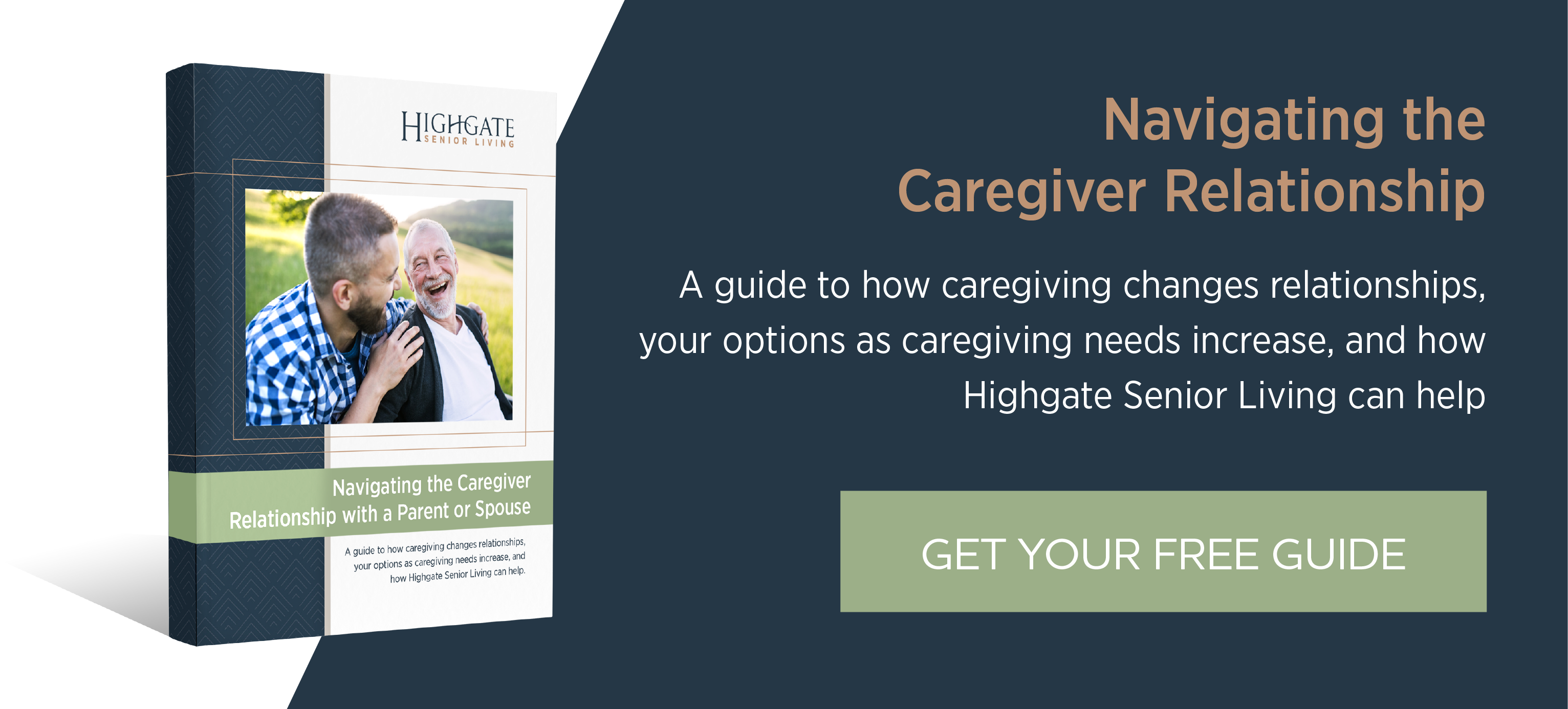
Do you keep agreeing to take on caregiving tasks that you really don’t want to do? Do you tolerate rude comments from your brother about caregiving decisions because you can’t handle conflict? If so, creating stronger boundaries will be the No. 1 way for most family caregivers to improve not only their lives but also the lives of those they love.
Why Boundaries Are Important
Boundaries are essential to any healthy relationship. They allow you to be your true self, creating a separateness that allows you to have your own feelings and let go of worrying about how others feel about you, make your own decisions, keep you from overextending yourself, and create realistic expectations.
But setting boundaries is a skill, and for many family caregivers, it’s a challenging one. It’s not easy to say no to a parent who wants to move in, to say no to unreasonable requests from siblings, or to bow out of obligations that are just too much on top of caregiving demands.
Guilt is the most common obstacle to making yourself a priority and setting boundaries to take care of yourself. That’s why it’s important to remember that boundaries aren’t punishments or retributions but rather a means of remaining physically and emotionally healthy in the caregiver role.
When you clearly communicate your boundaries, people know how they’re expected to behave. When expectations aren’t communicated and met, resentment and anger grow.
Whether you are brand new to caregiving or you’ve been in the trenches for months now, it’s never too late to re-evaluate your priorities, set simple but firm boundaries, and repair relationships with the people you love.
How to Set Healthy Boundaries
So how do you set those expectations? Here are five tips for balancing your needs with the needs of the people you care for, setting personal limits, and saying no to requests that push those limits.
1. Get Clear with Yourself
Before you can set boundaries with others, you need to figure out what you really want to protect and what your limits are. Do you need your mom to stop calling you all together? Or can she call you under certain circumstances?
Pay attention to what you can accept and what makes you lose energy, feel uncomfortable, or want to cry. Get clear with yourself about what the boundary is that you need to set so that you can communicate your expectations.
2. Stop “Shoulding” All Over Yourself
Just because someone asks you to do something doesn’t mean you should do it. And if you do it because you think you should, it’s a sign that you’ve internalized someone else’s expectations and values.
Instead of acting on shoulds — I should run that errand for my mom, I should stop by my dad’s home on the way home from work — do what you want. You won’t feel resentful that another task has been piled on your overflowing to-do list, and parent will survive.
Making yourself a priority might make you feel uncomfortable or guilty, but try to see that as a sign that you’re on the right track. Your personal boundaries lie in that gray space between having to and wanting to.
3. Be Straightforward
When setting boundaries, you might feel the urge to apologize or defend or to give long explanations for your feelings. Resist this urge.
You deserve to have boundaries, and the kindest, most successful approach is to be firm and direct. Say what you mean and mean what you say.
4. Speak Up
It’s not enough to set boundaries. You actually have to follow through. And it’s not fair to assume that people know your boundaries until you’ve explained them.
But saying no might be the hardest thing to do as a caregiver. Like any new skill, assertively communicating your boundaries takes practice.
If your sister is always asking you to take her Tuesday night visits with Mom during your workout time and exercise is one of the self-care priorities that you want to protect, practice saying no out loud. Then you’ll be ready to respond calmly if the situation comes up.
When your sister does cross one of your boundaries, address the violation early. Don’t wait until she has bailed a dozen times before you speak up — or blow up in anger. If you don’t talk about it early on, then breaking the pattern will become harder and harder as time passes.
5. Get Support
Starting to set boundaries is tough! It can bring up a lot of questions, uncomfortable feelings, and self-doubt. Having a support system is invaluable whenever you’re doing something challenging.
If there comes a point in time when it’s best to let others take on the responsibility of caregiving, don’t be afraid to ask for assistance and respite. Respite stays can give you a short-term break from caregiving while your loved one gets to test the waters of assisted living.
If the thought of considering a move to assisted living has you hesitant or feeling guilty, consider the outcome: Once the burden of being a caregiver is set aside, you can rebuild your identity, reclaim your sense of self, and return to being the husband or wife or son or daughter again.
Without setting those realistic boundaries and clear expectations, caregiving can place tremendous strain on your relationships. For more insight into how caregiving changes relationships, your options as caregiving needs increase, and how Highgate Senior Living can help, download our eBook Navigating the Caregiver Relationship with a Parent or Spouse.






